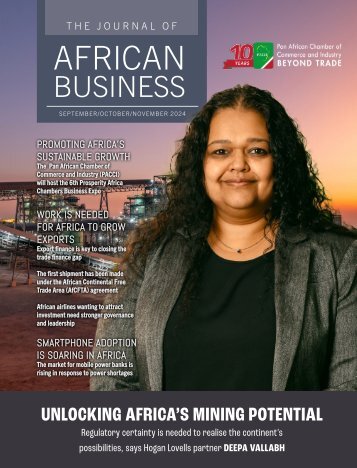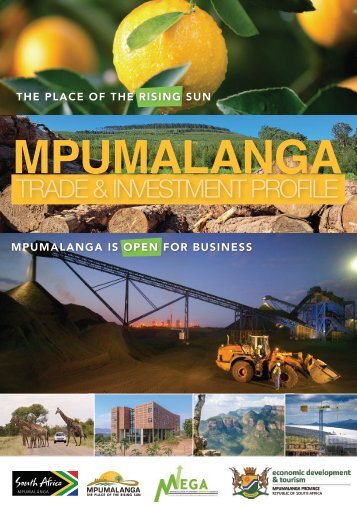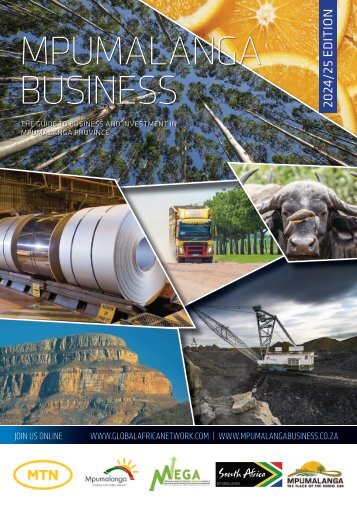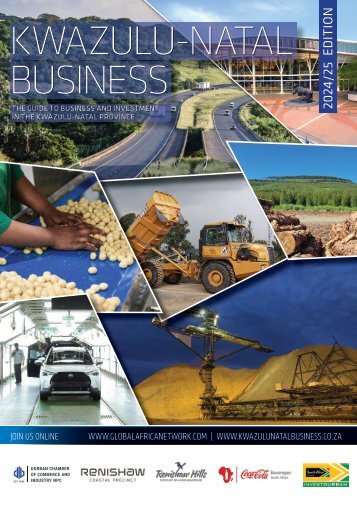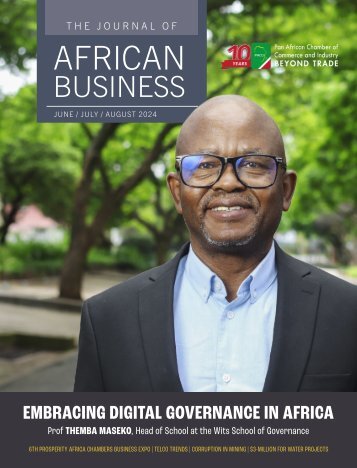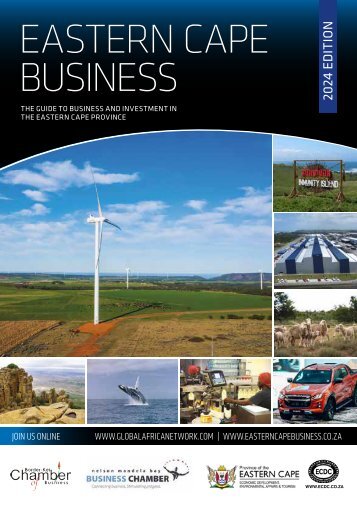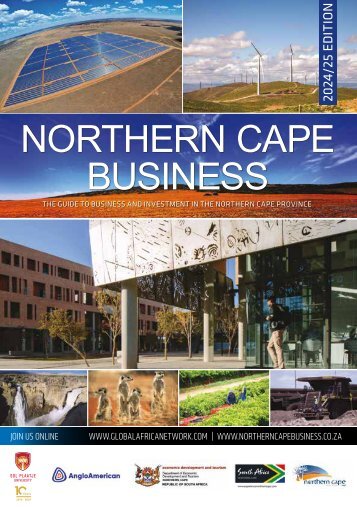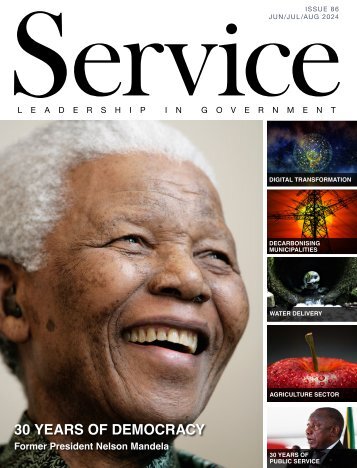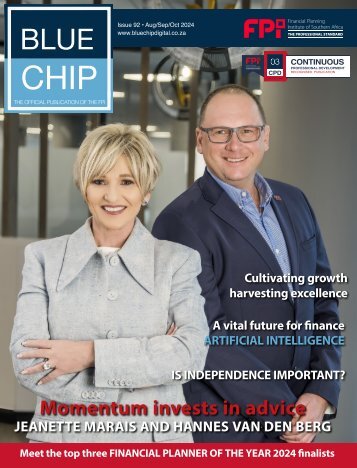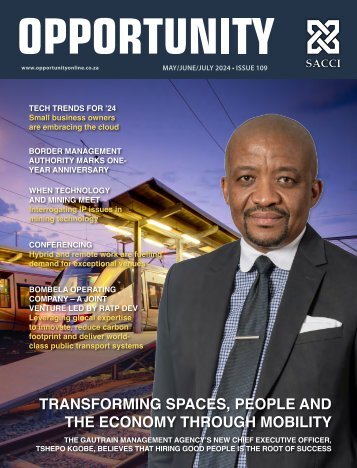North West Business 2017 edition
- Text
- Government
- Business
- Guide
- Investment
- Business
- Government
- Africa
- Province
- Province
- Provincial
- Platinum
- Municipality
- Sector
- Banking
- Rustenburg
- Economic
- Tourism
- Mining
- Edition
OVERVIEW Energy
OVERVIEW Energy Generation and manufacturing hold great potential. The sun shines in the North West, on average, 300 days of the year. In addition, the province mines more platinum than any other place on earth. These two facts combine to present a suite of opportunities for energy generation and for the manufacture of equipment for the energy sector. A start has been made, but the potential for investors is massive. The provincial unit of the Industrial Development Corporation is in discussion with the German manufacturer of solar panels who go beyond simply making the panels, they allow for horticulture under the farms. In this way, the installation of a solar farm can create 35 jobs per megawatt, instead of the usual average of 1.6 jobs per megawatt, and make a contribution to tackling food security. RustMo1, a 7MW solar farm at Buffelspoort, is already producing energy. Local company Momentous Energy, in partnership with a community trust (representing Lapologang and Tsakane) are behind the project which was installed by German company, juwi Renewable Technologies. This project is part of the national programme, the Renewable Energy Independent Power Producer Procurement Programme (REIPPPP) which aims to add some 6 000MW to the national grid by 2020 (and 13 225MW by 2025). An opportunity for solar panel market manufacturers is being promoted by the North West Development Corporation at Mahikeng. Investors are sought to manufacture and supply panels to farms, housing schemes, the mining industry and government. The Potchefstroom campus of the North West University is home to HySA Infrastructure Centre for hydrogen production, storage and delivery. onal strategy designed to make use of hydrogen and fuel cell technology, particularly arising from platinum group metals (PGM). South Africa’s nuclear-research centre is located at Pelindaba near Hartbeespoort Dam, and is run by the South African Nuclear Energy Corporation. The Nuclear Engineering Department at North West University (NWU) is the only one of its kind in the country, and the ONLINE RESOURCES National Department of Energy: www.energy.gov.za North West Development Corporation: www.nwdc.co.za SECTOR INSIGHT Fuel cell technology is an important field of study. • Manufacturers of solar panels are showing interest in investment. National Department of Science and Technology granted a chair in Nuclear Engineering to NWU. Bioethanol, biodiesel and methane gas from waste and renewable resources are among the types of biofuels being investigated. As a grain-producing area, North West Province is obviously well suited to supplying feed stock for biofuel projects, but a new set of national government guidelines has seen the emphasis in this nascent industry shift towards finding fuel stock from crops that are less likely to affect food security. These crops include sugar cane, sugar beet, canola and sunflower seeds. A debate is under way about changing national policy to allow surplus grain to be used for energy production. Sunflower seeds are very suitable for converting into biofuel, and the North West has an abundance of this crop. Sweet sorghum is a possible feedstock for processing into bioethanol. NORTH WEST BUSINESS 2017 36
Water The City of Tlokwe is a water award-winner. OVERVIEW The good rains that finally fell in the interior of South Africa in late 2016 came as a great blessing after a long and painful drought. But in the North West province the rains came even later than in most places, putting extra strain on agriculture, towns and businesses. South Africa is a water-scarce country and water management is critical to economic planning. The western part of North West Province is particularly dry. In the eastern part of the province, national government has sent water tanks to some parts, and has upgraded the treatment plants upstream from the Hartbeespoort Dam. Infrastructure in some cases has not been serviced for some time, and leaks and skills shortages in some municipalities are a problem. Three of South Africa’s six major catchment areas are located in the province: the Limpopo, the Orange and the Vaal. Within these catchment areas, only the Vaal River has a strong-enough flow to allow for significant amounts of water to be taken from it directly to support irrigation or industry. There are four water-management areas in the province, three of which are linked to the Vaal River. Water is imported into the provincial system through transfers between water basins. The province has 83 sewage-treatment plants, and the national Blue Drop award system has found most of them need a lot of improvement. In the period from 2009-2014, the municipalities found to have the best water systems were City of Tlokwe (Potchefstroom), Rustenburg, and the City of Matlosana (Klerksdorp). In that period Tlowe averaged 97/100 but several water authorities struggled to make improvements. Tlokwe is one of only three municipalities in the country that acts as a water-service authority and as a service provider. The biggest service providers active in the North West are: • Rand Water • Magalies Water • Sedibeng Water (including Botshelo Water) ONLINE RESOURCES Blue Drop Awards: www.ewisa.co.za National Department of Water and Sanitation: www.dwa.gov.za SECTOR INSIGHT Rustenburg has introduced a digital data management system to control its services. • The village of Jericho received piped water in 2016. • Midvaal Water Company supplies water to Matlosana (Klerksdorp). The city of Rustenburg has created the Rustenburg Water Services Trust (RWST), a specialpurposes vehicle that runs the town’s relatively new water system. It was formed with Magalies Water acting as the public partner and operator, with Rustenburg Consulting Consortium (led by Bigen Africa) providing expertise. Hartbeespoort Dam is a significant factor in the water sector of the North West province. It receives water from the Crocodile, Jukskei and Magalies rivers. It also receives a lot of waste from the surrounding areas. The storm water that flows into the dam includes fertiliser and animal waste. Degraded river banks and wetlands in the catchment areas contribute to the problem. The result has been a build-up of phosphates in the dam, and various projects have been launched to tackle the problem–with variable success rates. 37 NORTH WEST BUSINESS 2017
- Page 1 and 2: Colour Breakdowns NORTH WEST BUSINE
- Page 3 and 4: The NWDC has 10 branches across the
- Page 5 and 6: UIF SAVING JOBS THROUGH SOCIALLY RE
- Page 7 and 8: Wesvaal Chamber of Business First A
- Page 9 and 10: MESSAGE • Implementation of the V
- Page 11 and 12: Manufacturing capacity is concentra
- Page 13 and 14: SPECIAL FEATURE NORTH WEST PROVINCE
- Page 15 and 16: SPECIAL FEATURE Another way of sayi
- Page 17 and 18: PROFILE Mothotlung, Hebron, Kgabala
- Page 19 and 20: DESTINATION OVERVIEW wildlife, cult
- Page 21 and 22: Break away to Mmabatho Palms Hotel
- Page 23 and 24: We Fly North West! Discovering the
- Page 25 and 26: SPECIAL FEATURE How South Africa’
- Page 27 and 28: Zooming into Nedbank’s small busi
- Page 29 and 30: 17264 SEE MONEY DIFFERENTLY WITH WH
- Page 31 and 32: OVERVIEW workers who suffer retrenc
- Page 33 and 34: Wesizwe honours commitments made in
- Page 35: OVERVIEW 20%. The total yield in 20
- Page 39 and 40: Education and training The North We
- Page 41 and 42: OVERVIEW licence. Once a board of d
- Page 43 and 44: INTERVIEW provide our customers wit
- Page 45 and 46: OVERVIEW supporting small and emerg
- Page 47 and 48: agriculture, manufacturing and heal
- Page 49 and 50: North West Local Government LISTING
- Page 51 and 52: The NWDC has 10 branches across the
Inappropriate
Loading...
Mail this publication
Loading...
Embed
Loading...

